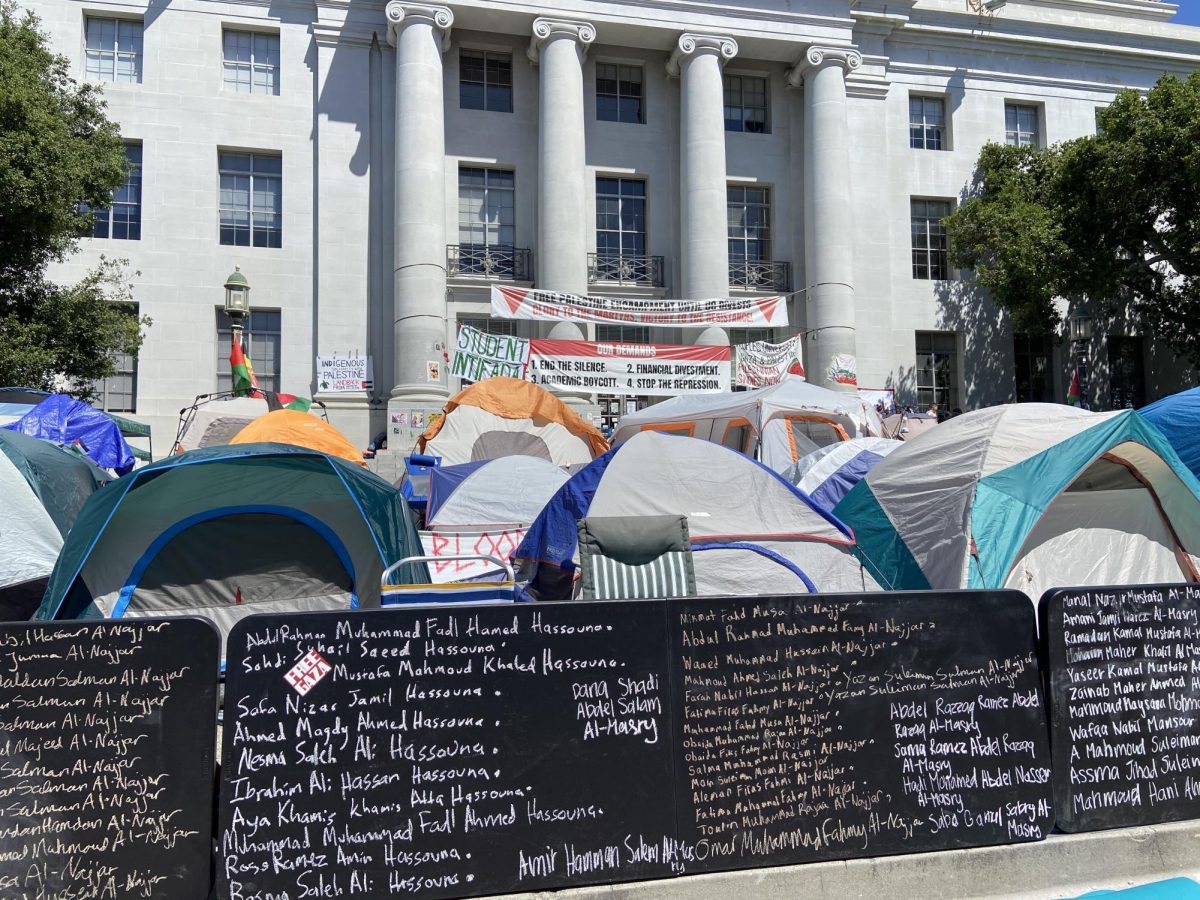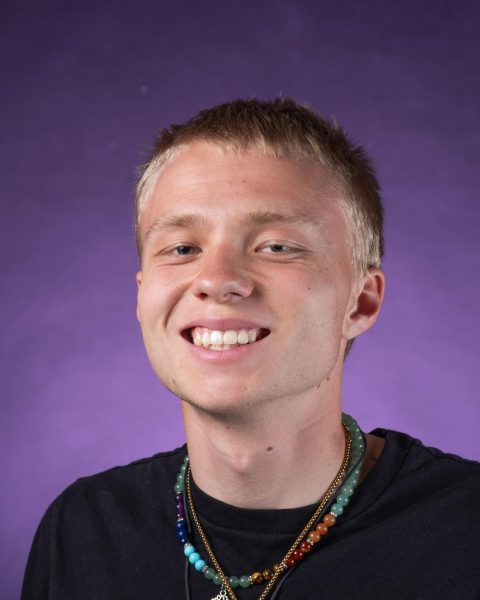In the wake of San Francisco State University’s alignment with the nationwide movement backing Palestine, SFSU’s Students for Gaza have dedicated themselves around the clock to maintain their encampment.
The open negotiation session the students had with SFSU president Lynn Mahoney on May 6 was a major development. Mahoney declared that she supports their choice to run this encampment and protest, while also stating that her concern is to keep the students safe. However, SFSU’s Students for Gaza is looking for Mahoney to meet its demands, according to signage posted by the grassroots collective:
- Disclose institutional expenditure into corporations supporting Israel, including direct and indirect investments, stocks, bonds, hedge funds, and more.
- Divest from all companies and partnerships that actively participate in the colonization and ethnic cleansing of the Palestinian people.
- Defend the Palestinian people and the courageous struggle for Palestinian liberation on campus by rejecting the racist, Islamophobic censorship of speech and activism on campus.
- Declare fully and publicly the illegal occupation, colonization, and ethnic cleansing of the Palestinian people and the U.S.-Israeli genocide in Gaza.
“Admin have said they will not send any police to remove us as long as we don’t block students from going to class or occupy a building,” said Brian, a media lead at the encampment who wished to be referred to by first name only. “That was also the work of faculty who have been helping us from the start.”
SFSU’s Students for Gaza took a big step on May 9 when they walked through several floors in the Humanities building while chanting in support of Palestine. This followed the picket protest and walkout, both of which happened earlier in the week.
“Our general belief is that there’s a progression of tactics and escalation; we can’t just jump from one action to a much bigger action,” Brian said. “You have to build up to that.”
Meanwhile, Students for Gaza and the encampment have a lot of participation and support from SFSU students, according to Brian.
“This kind of solidarity across the world is for one cause — to see a free Palestine, to see an end to this genocide,” Brian said. “That is what all these people around the world are looking for.”
Other protests in California have been catching attention in the news as of late; it was announced on May 8 that California State University, Sacramento would meet the demands of its students by committing to divestment from Israel.
“We feel the movement in us with the encampment,” said Hafsa, an organizer of Sacramento State’s Students for Justice in Palestine who asked to be referred to by first name only. “There is a different type of atmosphere between us here that we just don’t see in the outside.”
Hafsa mentioned how powerful it is that students from different schools are united in this despite the distance between them.
“Many can turn their heads and ignore genocide and millions of [dollars of] our tuition money going to fund the genocide of Palestinians, but not us,” Hafsa said.
Another encampment that has received a lot of attention since the entire movement started is at University of California, Berkeley. Students have similar demands to SFSU; many call the war in Gaza a genocide, as well as calling on administration to financially divest from any company connected to Israel.
“We’ve been asking this university to address these demands for decades,” said Hamza Mahmoud, a camper and a student who is part of the U.C. Berkeley Divest Coalition. “This is kind of a way to expand the movement.”
Mahmoud is pleased and inspired to see more energy every day, and students waking up to what is unfolding in Gaza. However, their end goal is to help bring an end to it.
“This is not about us, this is not about the encampment, this is not about our struggles,” Mahmoud said. “This is about Gaza’s struggles.”

The University of San Francisco has an encampment of its own that has gathered support from many students, but their protesters are struggling to see as much support from the university’s administration.
“I feel like the admin hasn’t really been taking us as seriously as we want them to,” said Rainee, who is involved with tactical and logistical matters related to the protest, and wanted to be referred to by first name only.
Rainee and Hannah Beauchamp-Pope, the point person for legal matters in the protest, both voiced concern that the admin is trying to wait students out until graduation, expecting them to leave afterward. Because of this, USF may escalate things further while remaining cautious for their safety.
“We’re definitely learning from the other encampments, seeing what happened at UCLA with the mob of Zionists attacking those students,” Rainee said. “We need to figure out another plan of defense if this was to happen at our encampment.”
The details of these plans are still being ironed out, but presently, the encampment continues to receive strong support from students.
“It’s definitely a building-the-ship-as-we’re-sailing kind of scenario where, as we’re moving along, we’re making adjustments,” Beauchamp-Pope said.
These encampments continue to support the pro-Palestine movement spanning California and the rest of the United States. Brian suggests that students at SFSU who wish to contribute to the movement in support of Palestine can do so by either donating supplies to the encampment, spreading the word about it among their friends and family, or actively participating in the cause themselves.
“Come out and pitch a tent,” Brian said. “To see an end to Israeli occupation and apartheid, to see a free Palestine, we need to organize, and we need to fight collectively.”











